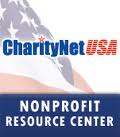Nonprofit Does Not Mean Tax Exempt Status
By Melanie Swift MNM and Thomas R. Reich

A common misconception in the field of philanthropy is the notion that an organization has tax exempt status simply due to the fact that it has been organized as a nonprofit. Unfortunately, with very few exceptions, this particular misunderstanding could leave an organization who thought they had tax exempt status, to now face tax debt with both the IRS and their state franchise tax board.

Nonprofit tax exempt status is a concept of state law and not necessarily tax exempt. A nonprofit organization, in its simplest variation, is any organization for which those who control or support it do not earn a profit. Choosing to incorporate as a “nonprofit” or “nonstock” corporation may, in fact, come with certain privileges, such as eligibility for state and federal tax exempt status, however this tax exempt status is far from automatic. It may be best to liken tax exempt status to a driver’s license- if you choose to request the privilege, you must apply, pass the test, and then, most importantly, follow the rules. For those organizations that choose not to pursue this privilege of tax exempt status, payment of annual corporate taxes is required.

Nearly all organizations that are nonprofit wish to have tax exempt status as well, so the terms are often confused. Many charitable organizations, for example, are nonprofit organizations and are recognized by the federal government as having tax exempt status. But becoming nonprofit and becoming an organization with tax exempt status are different processes, done at different times, and by different government agencies. To apply for federal tax exempt status, you need to have been granted nonprofit status first. Further, not all nonprofits are eligible for tax exempt status.

The road to tax exempt status, for most nonprofits, is paved with compliance. Organizations must be familiar with all processes and procedures, and be prepared for detailed reporting. In addition to the provision of particular clauses in the organizing document that precedes an extensive application process with the IRS, charities must be mindful of state and local tax exempt status and the registration requirements. Additionally, organizations that have been granted tax exempt status must be aware that that not all income received is eligible for tax exempt status, and be mindful to pay required taxes on any unrelated business income.
As I mentioned, there are a few rare exceptions to the rule. Some organizations are automatically recognized as having 501(c)(3) status (tax exempt status) without filing a formal application for recognition of the exemption. These groups include:

- Subordinate organizations that are covered by a group tax exempt status; however it’s important to note that group exemptions require a unique application process. Existing 501(c)(3) organizations cannot simply choose to add other organizations to theirs and create a group.
- Churches, parts of churches, or associations of churches
- Organizations that are not private foundations and normally have gross receipts of not more than $5,000 total per year.
Even though these groups automatically have tax exempt status, they may choose to file anyway, in order to have the official letter of determination on file. This often makes it easier to solicit contributions and ask for state tax exempt status.

There are a total of 27 tax exempt status existing under the federal tax code for different purposes, and some community organizations might find one of them more appropriate than others. For example, a group that is involved in heavy lobbying or political advocacy work would be unable to apply for 501(c)(3) status, as it isn’t allowed under that statute. So a group heavily involved in social welfare that wants to lobby extensively for political candidates, for example, might find 501(c)(4) tax exempt status (which deals uniquely with social welfare organizations) more appropriate for their purposes.
 Therefore, before deciding to become 501(c)(3) tax exempt status, it’s a good idea to sit down and study other possibilities with an expert. Together you can decide on the type of tax exempt status that best meets your needs. That way you won’t be trying to push a square peg into a round hole.
Therefore, before deciding to become 501(c)(3) tax exempt status, it’s a good idea to sit down and study other possibilities with an expert. Together you can decide on the type of tax exempt status that best meets your needs. That way you won’t be trying to push a square peg into a round hole.



|
|
| 501(c)(3) Tax exempt Benefits with Melanie Swift |
|
| Join us for a Webinar on August 22 |
|
|
|
Space is limited.
Reserve your Webinar seat now at:
https://www2.gotomeeting.com/register/519556298 |
|
Wednesday Aug 22, 2012
2:00 pm – 3:00 pm online from CharityNetUSA
Key Note Speaker: Melanie SwiftHow do you determine if your ready to apply for a 501c3, are you jeopardizing your organization by not having one? What are the advantages and protections of having a 501c3? How can a 501c3 open new fundraising doors and allow more freedom in your organization? Join us for this free webinar, and find a fact filled discussion on one of the most important issues facing our industry today, 501c3!. All of this information and much more is yours in this FREE webinarWe invite you to spend a valuable hour with CharityNet USA and our Director of Nonprofit Services Melanie Swift and discover another way we can help your nonprofit organization cannot only overcome, but grow during the current economic conditions.As the past shows: the economy will recover, resources will catch up with us and finances will level out. Don’t wait for recovery to happen, get started growing your nonprofit now. When America recovers, your nonprofit will not only be in the game, but you will be an MVP!Contact Marketing Coordinator Thomas R. Reich for more info at tom@Bizcentralusa.comor call him at (407) 857-9002 ex 510Register Now!
Your Friends in the Struggle,
CharityNetUSA |
| Title: |
501(c)(3) Tax exempt Benefits with Melanie Swift |
| Date: |
Wednesday, August 22, 2012 |
| Time: |
2:00 PM – 3:00 PM EDT |
| After registering you will receive a confirmation email containing information about joining the Webinar. |
System Requirements
PC-based attendees
Required: Windows® 7, Vista, XP or 2003 Server |
|
Macintosh®-based attendees
Required: Mac OS® X 10.5 or newer |
Mobile attendees
Required: iPhone®/iPad®/Android™ smartphone or tablet |
|
|
|
|
Related Blogs
 10 Reasons why you should not put off filing for a 501c3 and why you should have CharityNet USA prepare your filing now!
10 Reasons why you should not put off filing for a 501c3 and why you should have CharityNet USA prepare your filing now!
 10) CharityNet USA smoothes the process. We have helped over 12,000 charities prepare filings for 501(c)(3) status and we can help you too.
10) CharityNet USA smoothes the process. We have helped over 12,000 charities prepare filings for 501(c)(3) status and we can help you too.







